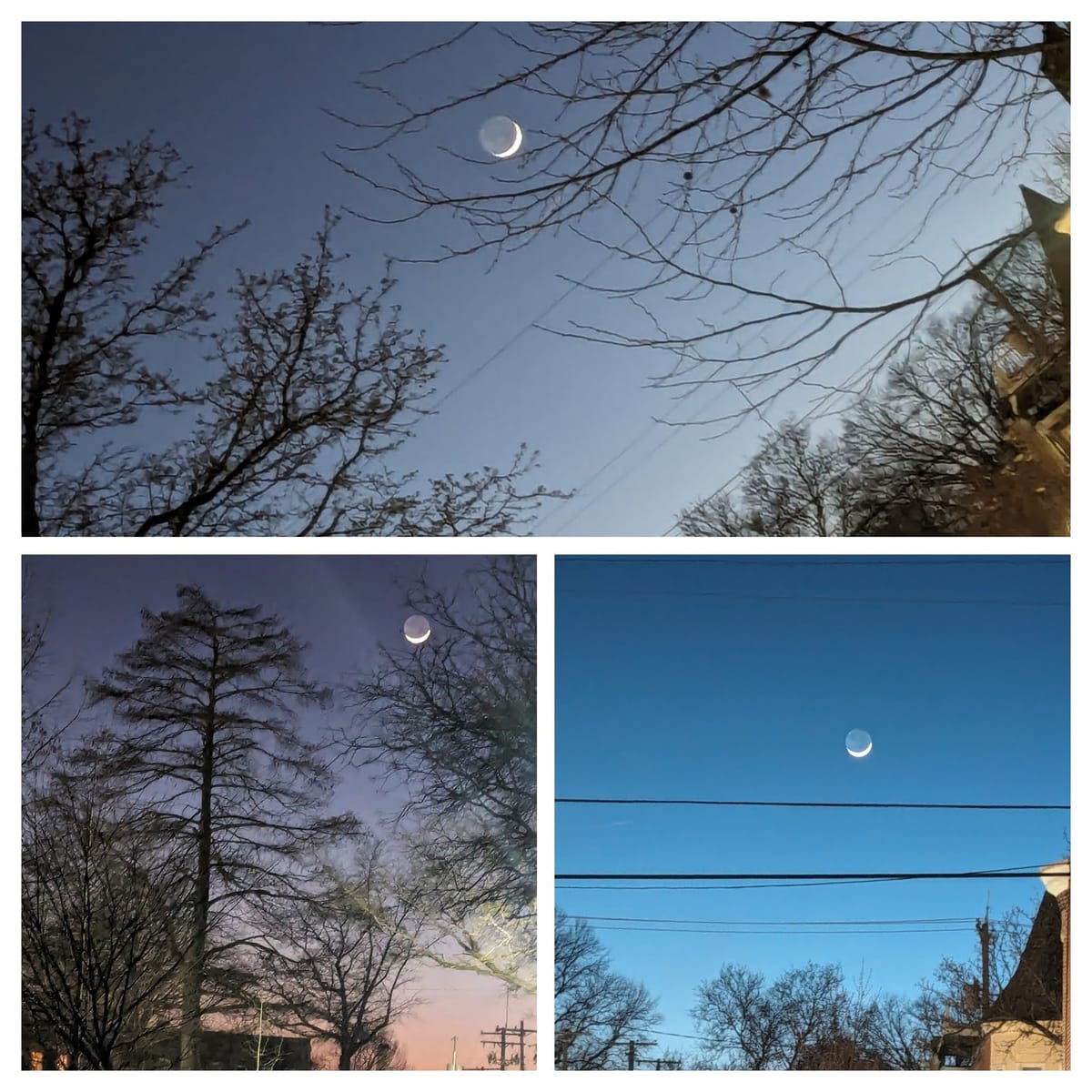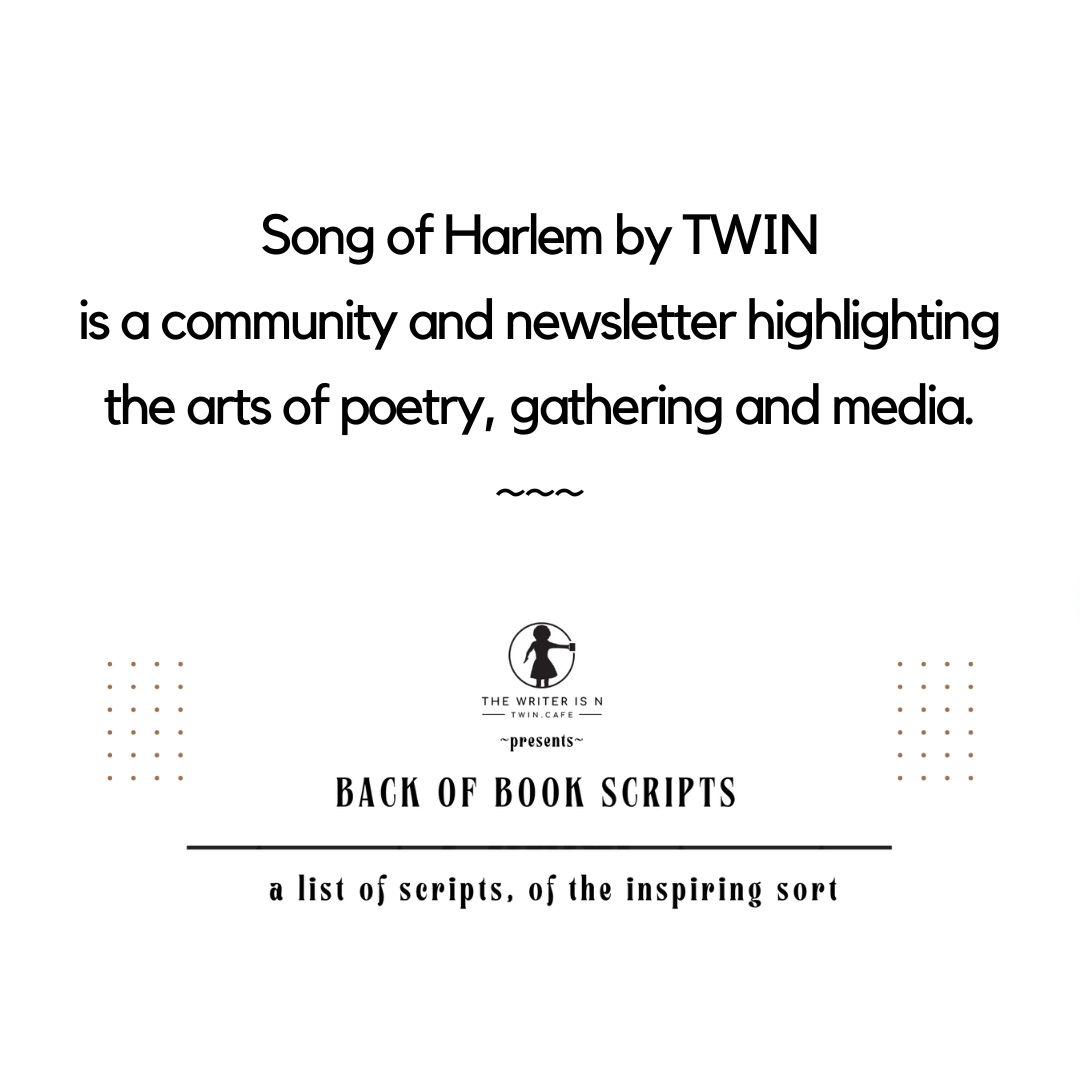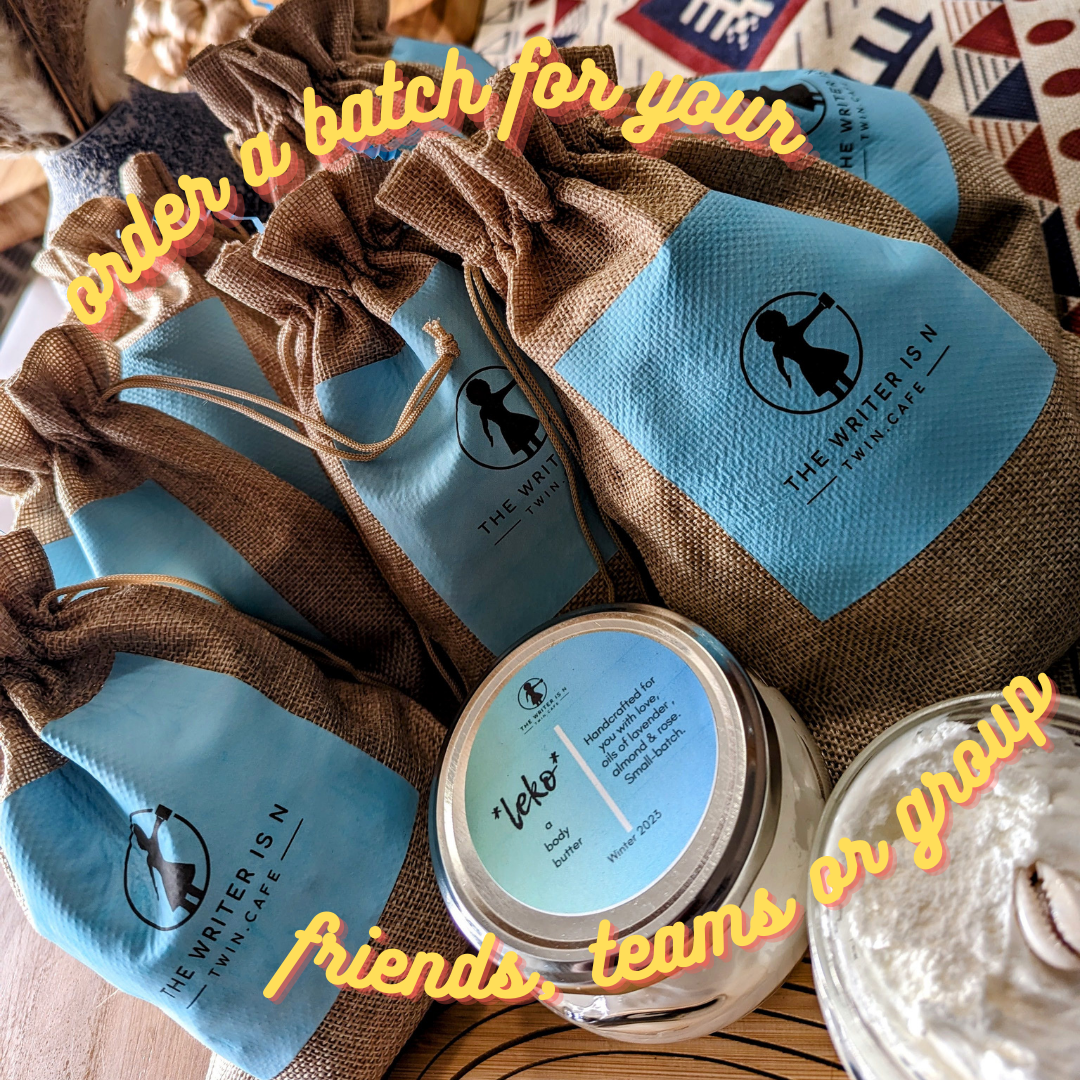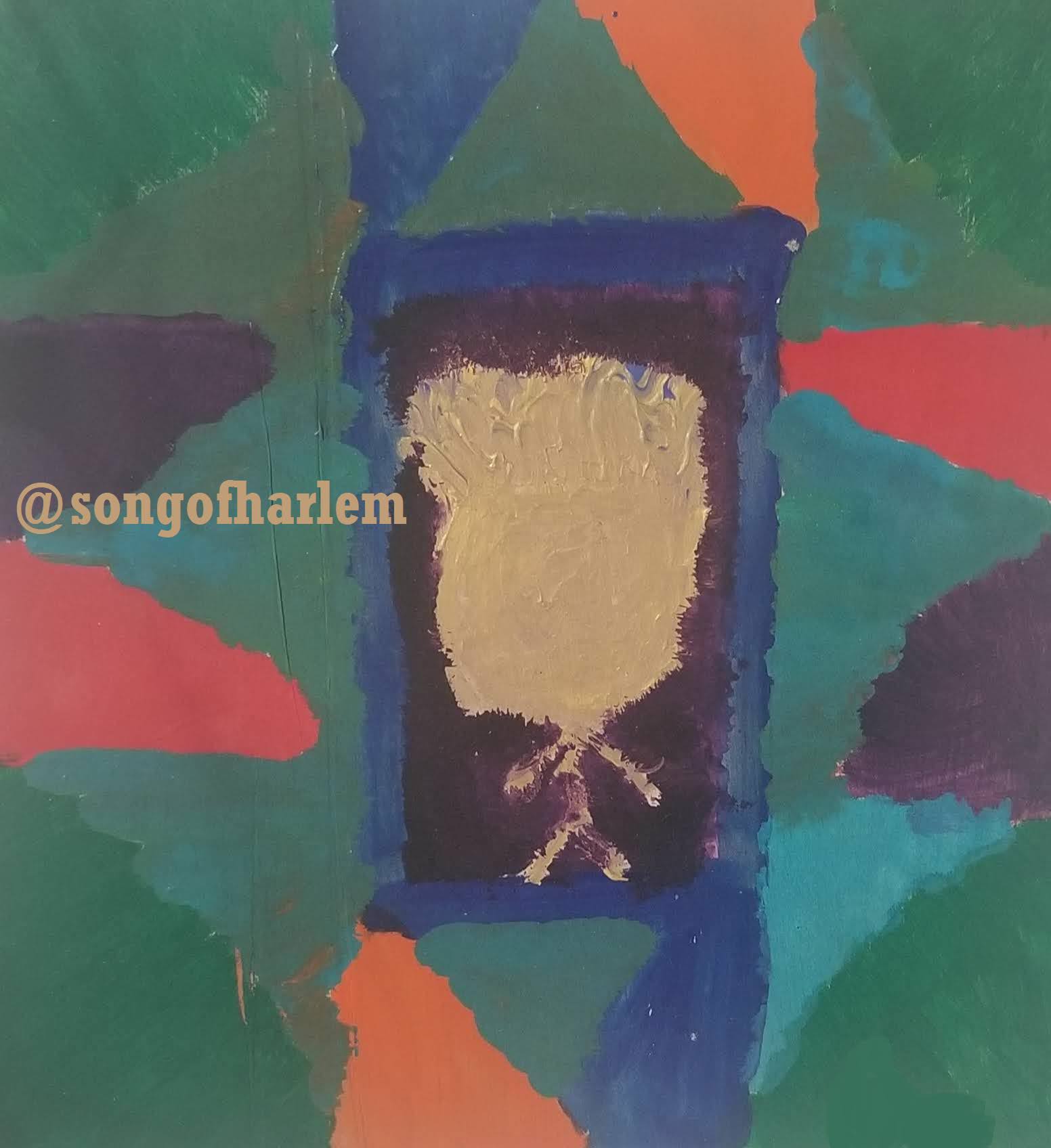Heavy On It | Back Of Book Scripts #13


☂New moon is in PISCES, let's go!
- Our next soak circle will be on Sunday, March 24, and will take place online. Join us as we check-in, connect, share and somehow manage to soak our feet. Please register here.
- You can order your next jar of body butter for yourself or community groups here.
- Please take a moment and become a member of our newsletter. Your support and encouragement fuels all of of our work.
ZingWingDing Recommends
- Check out the The Harlem Renaissance and Transatlantic Modernism at the Met through July 28.
- Women's Jazz Festival returns to the Schomburg on March 18th, featuring Original Pinettes Brass Band/Sounds of New Orleans.
- Poet and Singer Karen Maynard will perform at Patrick's Place on 3/16.
- Yummy Recipe Links: Homemade French Fries, Garlic Mushrooms Skillet
- The documentary, The Sun Rises in the East is on Amazon Prime, and can be found on YouTube here. The doc explores the impact of the The EAST Cultural and Educational Center for People of African Descent.
- We've got today's letter below. Please like, share, & comment below.

Dance Energetic / Let's GO
Heavy On It
by Nzingha Hazelton
Usually monthly, usually all Black, usually all women attending. These are the usuals for the gatherings centered around foot-soaking that I have facilitated over the last few years. Though the bulk of the circles, as I’ve called them, are relatively stress free it is the naming of our pronouns where I wonder if I am pushing my own ideals too hard on others.
Beginning with some type of introduction or icebreaker, I have encouraged participants to share their pronouns. My own stand out to me: they/them/honey. And, she/her/us/we or him/her/she or I am a person or something like God body. I sigh with relief that we have gotten through this currently cycling stamp of inclusion.
Truthfully though naming our pronouns in the perforce way that we do, seems flimsy, clunky even; this attempt to be open and accepting to all who show up, as they show up. In the last years of my mother’s life, say 2020 and 2021, she’d attend the circles as well, and yet I do not remember her ever stating her pronouns. This would have been something we’d likely have gotten into a thing about back then. Occasionally, when I lived at home the two of us would get into vigorous arguments about one thing or another.
I had come out, mostly to myself, or at least partially come out, as bisexual; and I will not say that Mama was phobic but at times she would say something insensitive. I cannot remember though the precise origin of any particular argument which makes me ask ultimately, “Was it worth fussing over?” In the year before she passed, we were on the verge of getting into a row about terms of motherhood.
Mama would not, for example, have been ready to relinquish calling childbearing parents mothers. This practice is currently common in many birthing circles. That is, referring to childbearing parents as pregnant people or birthing people versus as mothers. I think I worked with her so much so that she would not be in a corner of the world all by her-midwife-self. I say this as I think about what it means to maintain the autonomy of a female-led space, a sister space. I say this as I wonder whether perhaps a corner of the world is a courageous place to be. For it takes a certain blind persistence to stand up to a wave of blanket agreement.
A corner of the world for black women, a space for black girls. It is also rare to really find, for instance, all-black spaces. This rarity makes me think of Harlem, and what it meant to live in Harlem when it was largely all-Black. I remember the feeling of being back uptown, in Harlem, back home. This is somewhat akin to what I am feeling about sister spaces, and how hard it is to uphold a space that is just for Black women and girls without seeming exclusive.
I do remember having similar arguments around inclusivity & non-heteronormative relationships with two previous boyfriends. I wrestled with the fear that they would be seen as bigfoot bigots. One of these guys never came around and I wrote him off: surely he would never be a good partner. But now I think I could have thought it through more carefully.
I could have been more curious and more skeptical. Led by a question that my freshman English teacher often posed, Zinger, do you believe everything you read? I find as I get older I notice the difficulty in standing out with a singular thought or opinion, the difficulty in being different. For example, I've generally encouraged people to share their pronouns, offering in practice the deeply-shared value of inclusion. But, how do you balance the value of inclusion with the necessity of boundaries? Have I simply accepted stating pronouns like everyone was doing? Why was that so easy to do?
I remember in high school at Northfield Mount Hermon making friends with a student from Minnesota who happened to be Native American. At least, that was what I always considered them to be, Native American. But it was not until much later that I realized that they identified as Indian. They identified with a term that I always thought denigrated them.
In referring to them as Native American, I thought I was being progressive. However, they saw themselves as Indian, just as many mothers see themselves simply as mothers, not pregnant people. Similarly I remember when many people began using the term Latinx to identify and a peer from Amherst vehemently refused this label. I am not exactly sure why, but they said it did not apply to them.
I want to think more about choosing pronouns before just using them. Is gender something we perform? Is being male or female, trans simply that, a performance? I think I used to accept the idea that gender is a performance as a fact maybe because it sounded good, but this was just the kind of thing I might have argued with Mom about. Being pro-Black is not being anti-White. Being pro-female is not being anti-male. In choosing to include you, someone, them, I am asking you to stride together in a solidarity of mission, not to mirror me. Is it sometimes a necessity to be exclusive? What does that mean? What does it inspire or provoke?
Cue: Princess Diana (with Nicki Minaj) / Ice Spice, Nicki Minaj
Soon, n
